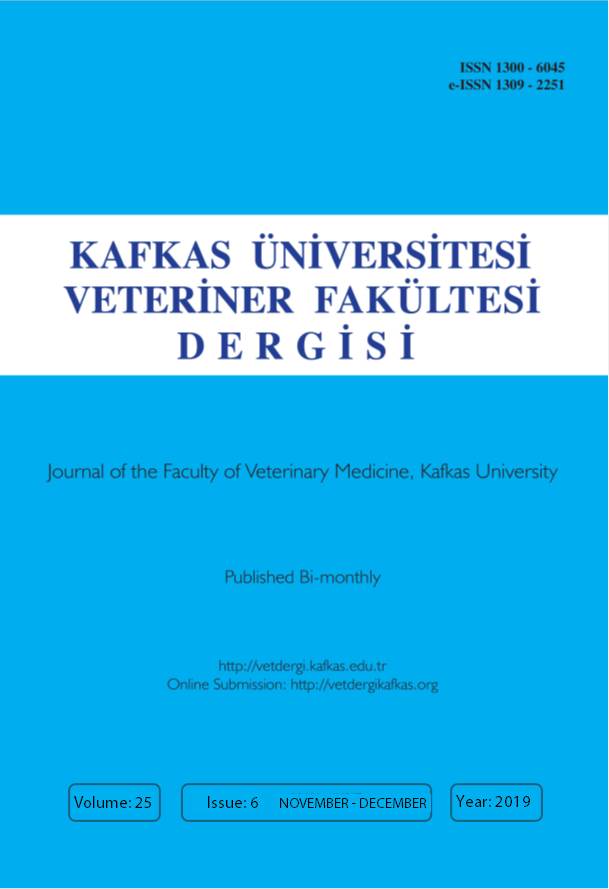
This journal is licensed under a Creative Commons Attribution-NonCommercial 4.0 International License
Kafkas Üniversitesi Veteriner Fakültesi Dergisi
2019 , Vol 25 , Issue 6
Evaluation of the Feasibility, Reversibility and Cardiorespiratory Effects of Epidural Dexmedetomidine in Sedated Dogs Undergoing Orchiectomy
1Department of Clinical Sciences, Faculty of Veterinary Medicine, Shahid Chamran University of Ahvaz, Ahvaz, IRAN
DOI :
10.9775/kvfd.2019.21943
The objective of the present study was to evaluate whether epidural dexmedetomidine (DEX) produces sufficient anti-nociception with reversible sedation and cardiorespiratory changes in sedated dogs undergoing orchiectomy. Twelve male dogs weighing 21.7±5.2 kg were used. Dogs received acepromazine (0.025 mg/kg) and morphine (0.25 mg/kg) intramuscularly and a second dose of morphine (0.125 mg/kg) intravenously (IV). DEX (3 μg/kg) was administered epidurally to all dogs (n=12). After confirming complete sensory blockade of the prescrotal region, orchiectomy was performed. If any discomfort was detected during surgery, 2-3 mL lidocaine 1% (maximum two times) was applied into the painful area. Sixty minutes after epidural application, dogs were randomly assigned to receive either treatment of atipamezole (ATP; n=6) or saline (SAL; n=6) IV. None of the dogs required general anesthesia; however, nine out of twelve dogs received lidocaine. The duration of sensory blockade was significantly shorter in ATP than that of SAL. Heart rate, respiratory rate, and rectal temperature showed significantly lower values compared with base after administration of DEX. Administration of atipamezole reversed sedation, sensory blockade and cardiorespiratory changes. In conclusion, epidural DEX did not produce adequate anti-nociception during orchiectomy in sedated dogs. Sedation, sensory blockade and cardiorespiratory changes induced by epidural DEX can be reversed by IV administration of atipamezole.
Keywords :
Atipamezole, Dexmedetomidine, Epidural anesthesia, Orchiectomy










